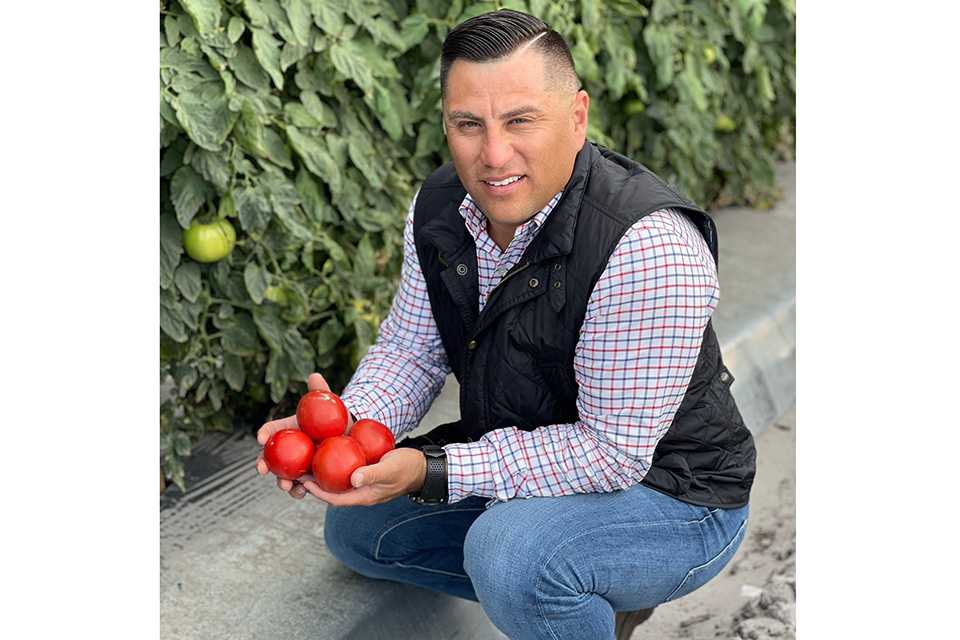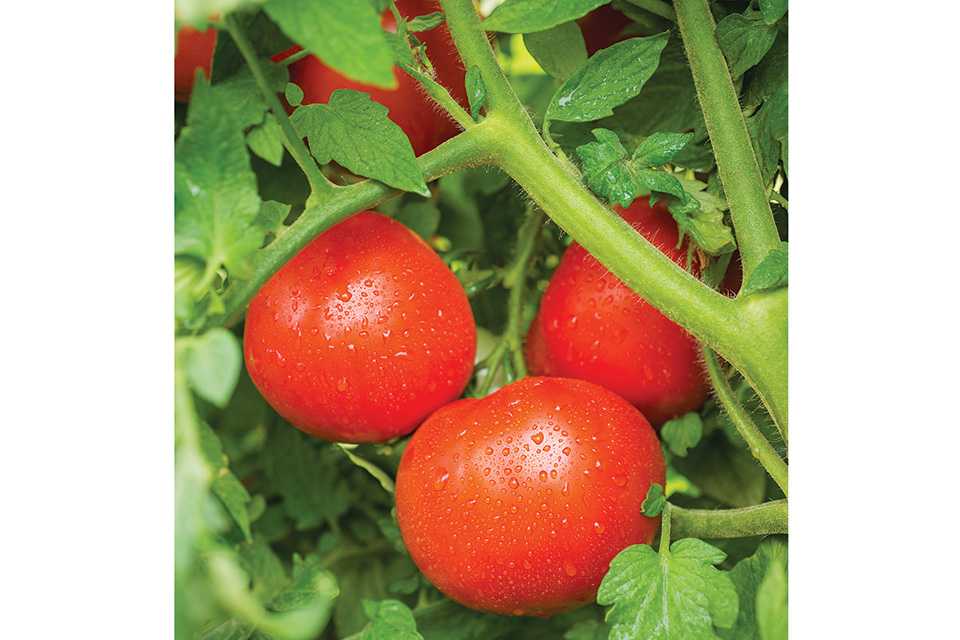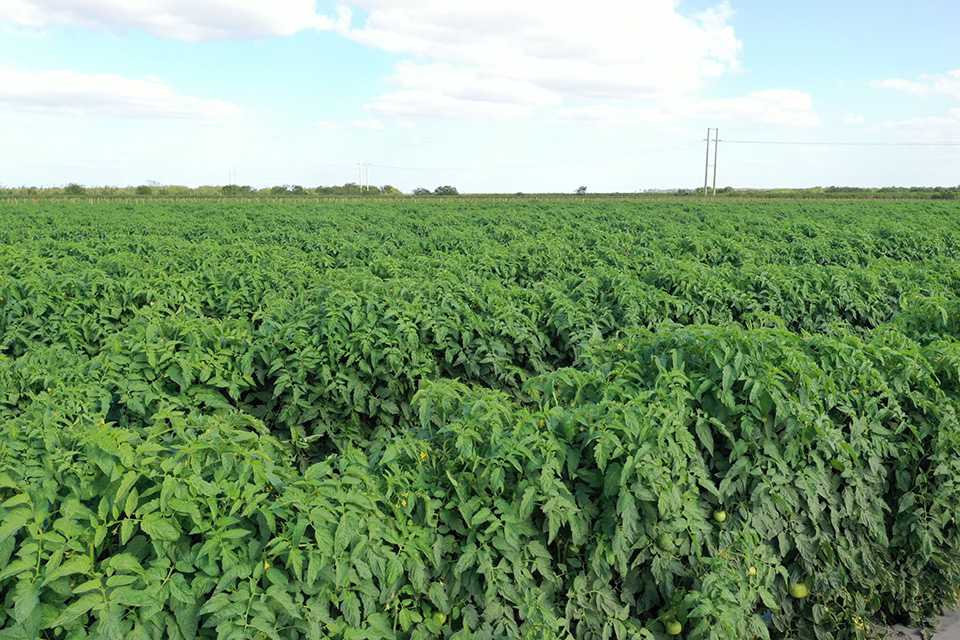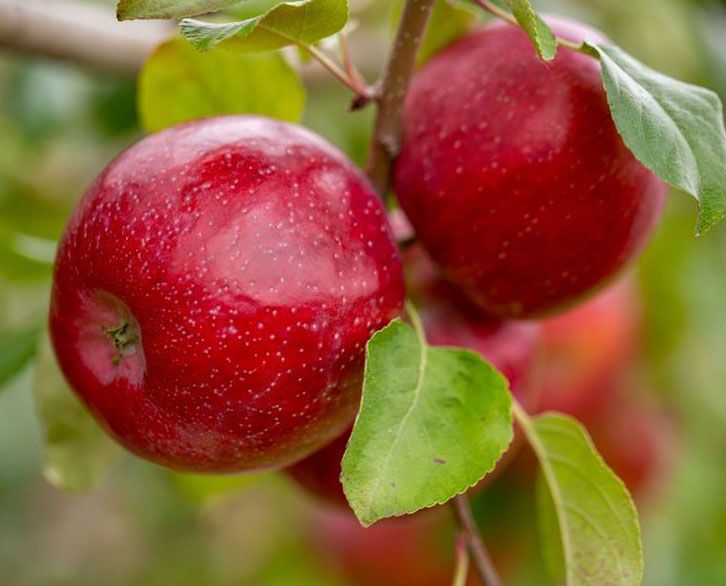Go Searching for the Perfect Tomato with Del Jardin Fresh

Juan Lopez of Del Jardin Fresh lived in Chicago for the first 11 years of his life. Then his father moved the family to North Carolina to begin farming. He’s been a grower ever since.
Photo courtesy of Del Jardin Fresh
Juan Lopez realized that many of his growing challenges — disease issues, pest pressure, productivity, flavor, shelf life — could be solved by using the right tomato variety.
As a result, Lopez, founder of Del Jardin Fresh, Inc., a farm consulting company in Florida, works with breeders to develop just what he needs. He grows a wide variety of tomatoes, including vine-ripe, cherry, grape, romas, and rounds, for several clients.
“The great thing about vine-ripe tomatoes is the flavor. But the challenge with vine ripe is that the exterior isn’t always perfect, and what the store customer wants is that perfect, red, unblemished tomato,” Lopez says.
So he took the obvious step and asked his distributors to identify tomato varieties that would combine great flavor with improved exterior quality. Little did he know his simple queries would soon have him helping develop the varieties he wanted.
‘Tasti Lee’ — A Case Study
In 2011, while Lopez was working with a farm in Wauchula, FL, “The seed distributor brought the seed breeder to the farm,” he says.
That breeder worked with Bejo Seeds. Soon, Lopez began working directly with Bejo Seeds to help trial their
‘Tasti Lee’ tomato variety. Bejo Seeds had licensed the right to the ‘Tasti Lee’ variety from the University of Florida and were already working with retailers to market the tomato.
But Bejo Seeds still needed to work with actual farmers to see how it would perform in multiple locations under varying weather conditions and with different fertilizer programs.

The first collaboration Juan Lopez had with tomato breeding was with Bejo Seeds’ ‘Tasti Lee’.
Photo courtesy of Bejo Seeds
It took two years to complete the ‘Tasti Lee’ trials.
Since his original trials with Bejo Seeds, Lopez has worked with several other seed breeders, including HM.CLAUSE, Syngenta, Sakata, Hazera, Seminis, and Enza Zaden. He has trialed more than 10 tomato varieties in the past decade and has 20 more in various stages of trials across his four growing locations.
His relationship with seed companies and seed distributors has become important to his success as a tomato grower, Lopez says.
Del Jardin Fresh, Inc. At a Glance
- Owner: Juan Lopez
- Year founded: 2014; Lopez began consulting in 2011
- Locations: Carolinas; North Florida; Arcadia, FL; Immokalee, FL
- Crops grown: Tomatoes (grape, cherry, roma, rounds), yellow squash, zucchini, watermelons, bell peppers, jalapeños,
and cucumbers - Size: Manages 1,000 acres
How the Grower/Breeder Relationship Works
Working with breeders sounds like a great opportunity. But how much commitment does it require?
Across the 1,000 acres Lopez currently manages, about 10 acres are dedicated to tomato trials. It only takes about two acres to trial a variety, he says.
To be successful at running tomato trials, the farmer must be willing to “put the effort in the crop,” Lopez says. He also keeps data for how the crop was grown so the seed company can manage its data points.
Lopez grows the tomato plants for a full season and leaves the tomatoes on the plant until they are completely ripe, wanting to see how the full flavor, color, and other exterior factors (such as cracking) develop in the tomatoes.
Then the seed breeder team and Lopez walk the fields and talk about the season, the location, the weather, and other factors that might not have been in the breeder’s information collection system.
“It’s a very fluid conversation,” he says. “The seed company might ask me to trial a variety that they think will have a particular disease resistance. But then I might notice that it grows better on one farm than it does on another. I’ll give them that information, and we will run another trial to see if that is due to the difference in weather, or maybe the difference in the fertilizer program, between the two locations. And then we might notice a difference in productivity or firmness.”
The breeders appreciate Lopez’s experience and attention to detail that help them understand all the factors that have affected that particular tomato crop.

It only takes about two acres to trial a variety, Lopez says. He currently has trials underway on 10 acres.
Photo courtesy of Del Jardin Fresh
A Two-Way Street
Breeders have a vested interest in working with tomato growers because the growers can provide them with uniquely valuable perspectives on the tomato’s flavor, disease resistance, pest resistance, productivity, cultural habit, color, crack resistance, firmness, and shelf life.
On the grower side, Lopez might contact a seed breeder and tell them what he needs (perhaps more productivity from a determinate vine-ripe tomato) and ask them to consider breeding for that particular set of characteristics.
While there are obvious benefits, it’s not a money maker. Farmers are not going to make a profit on running tomato trials, Lopez says.
That said, seed breeders bring transplants that are ready to go in the ground out to the trial site, and they will compensate for the labor and supplies that go into growing their trial crops. But that is as far as the fiscal compensation goes.
Biggest Challenge Vs. Biggest Reward
The most challenging part of working with seed breeders, Lopez says, has been matching up farm sowing dates with breeder sowing dates.
In the beginning of his work with breeders, they would sometimes bring over-sized transplants to the farm. Lopez solved this challenge by letting his breeders know when the Del Jardin Fresh growing team was sowing their seeds. Then the breeders could match that schedule and deliver transplants that were sized correctly.
The best benefit?
“The most rewarding part is to be able to talk to the breeder and let them know what we need,” Lopez says. “And then to see the results actually happening, to see the breeding program growing in the right direction and giving us the results we need.”
A City Boy Becomes a Farmer
When Juan Lopez was 11 years old, his family moved from Chicago to Hendersonville, NC, where his father bought a farm.
Although they had farming family members, Lopez explains, “I was a city boy. I thought tomatoes came from a shelf in the grocery store.”
Their new farm had crops in the field, so the Lopez family’s first experience with farming was harvesting. The next year they started farming on their own, and by the time he graduated from high school, Juan knew he wanted to farm for himself.
“My dad bought me a piece of land and a tractor and said, ‘go for it,’” he says.
Ten years later, after working in different areas of agriculture, including time with a large repacker on the retail side of the supply chain, Lopez capitalized on his strengths and interests and founded Del Jardin Fresh, Inc.
Del Jardin Fresh supplies produce-growing services to farms in the Southeastern U.S., from initial soil prep and variety selection through cultural work, as well as development and implementation of spray programs and fertilizer control.
Once the crop is ready to harvest, the farm owners step back into the process and provide their own harvesting, packing, marketing, and shipping.
“I just focus on growing their crops, and I don’t have to deal with the sales and all those other headaches,” Lopez says.










